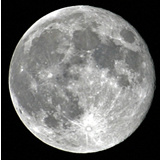
Yesterday was St David’s Day (Dydd Gŵyl Dewi), a day when many Welsh people wear daffodils (cennin Pedr) in honour of their patron saint. The daffodil (cenhinen Bedr) is one of the national symbols of Wales, along with the leek (cenhinen), and the Welsh name for daffodil means “Peter’s leek”. The leek has been a Welsh symbol for many centuries and features prominently in traditional Welsh dishes such as cawl cennin (leek soup). The daffodil became popular as a national symbol during the 19th century, especially among women.
The names for daffodil in Irish, Manx and Scottish Gaelic are similar: lus an chromchinn, lus ny cam-ching and lus a’ chrom-chinn, which mean “bent-headed plant”. Alternative names in Manx include lus ny n’guiy (goose plant) and lus yn arree (Spring plant).
The English word daffodil is thought to comes from the Middle English affodill (asphodel), from the Middle Lation affodillus, from the Latin asphodelus, from the Greek asphodelos, the origin of which is unknown. The initial d perhaps came from a merging of the Dutch definite article de with affodil (Source).
According to Plutarch the Latin name for daffodil, narcissus, comes from the Greek ναρκαώ [narkao] (to numb), which is also the root of narcosis, as the plant which produces numbness or palsy (Source). Although other sources claim that the narcissus was named after Νάρκισσος [Narkissos], the character in Greek myths.
The daffodil or narcissus is a symbol of vanity in the West, while in China it’s a symbol of wealth and good fortune.
